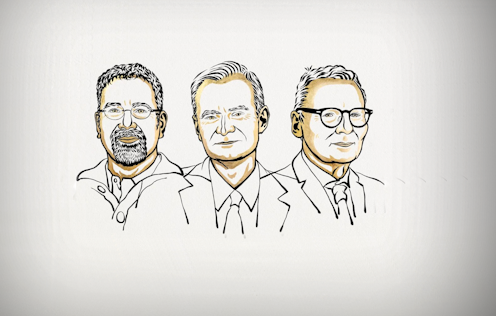This year’s Nobel prize in economics awarded to team that examined what makes some countries rich and others poor
- Written by John Hawkins, Senior Lecturer, Canberra School of Politics, Economics and Society, University of Canberra

The 2024 Nobel Prize in Economics[1] has been awarded to three US-based economists who examined the advantages of democracy and the rule of law, and why they are strong in some countries and not others.
Daron Acemoglu[2] is a Turkish-American economist at the Massachusetts Institute of Technology, Simon Johnson[3] is a British economist at the Massachusetts Institute of Technology and James Robinson[4] is a British-American economist at the University of Chicago.
The citation awards the prize “for studies of how institutions are formed and affect prosperity”, making it an award for research into politics and sociology as much as economics.
At a time when democracy appears to be losing support[5], the Nobel committee has rewarded work that demonstrates that, on average, democratic countries[6] governed by the rule of law[7] have wealthier citizens.







